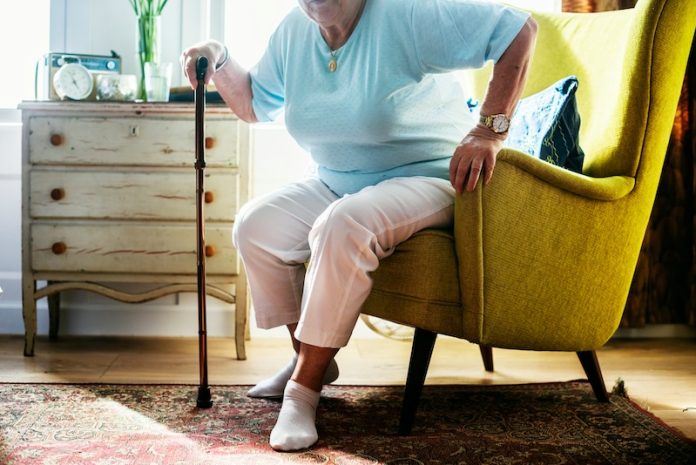
A new study from Monash University suggests that how fast someone walks and how strong their grip is could be early signs of dementia. These signs may appear before noticeable memory problems begin.
Researchers studied over 18,000 older adults, mostly aged 70 and above, who were originally healthy. They found that people who both walked slowly and had weak grip strength were much more likely to develop dementia than those who had only one of these issues.
The study revealed that having both slow walking speed and weak grip strength increased the risk of developing dementia by 79%. It also raised the risk of cognitive decline—problems with memory and thinking—by 43%.
As time passed, the risks became even clearer. When both walking and grip strength got worse during the nearly five-year study period, the chance of developing dementia jumped by 89%. The risk of cognitive decline increased by 55%.
This is the first time scientists have looked at these two physical signs together to see how they relate to brain health. The findings suggest that simple movement tests could help identify people at risk of dementia before symptoms appear.
During the study, 2,773 participants showed signs of cognitive decline, and 558 developed dementia. These findings are important because dementia is becoming more common. Right now, around 57.4 million people worldwide have dementia. By 2050, this number is expected to rise to 152.8 million.
Dr. Suzanne Orchard, a researcher at Monash University, said the study highlights the connection between physical and mental decline as people age.
“Poor physical function could be an early sign of future cognitive problems,” Dr. Orchard said. “If we can detect the risk early, we may be able to take steps to slow down the progression of dementia.”
Right now, there is no cure for dementia. However, early detection can help doctors suggest lifestyle changes, therapies, and medications that might slow down its effects.
Dr. Orchard believes that simple tests like checking grip strength and walking speed could be useful tools for doctors. These tests are easy to perform and could help identify people at higher risk of dementia. This could lead to earlier treatments and better outcomes for patients.
The study was part of the ASPREE (ASPirin in Reducing Events in the Elderly) clinical trial, which focused on the effects of low-dose aspirin in older adults.
It was led by Monash University in Australia and the Berman Center for Outcomes and Clinical Research in the U.S. Participants had their grip strength and walking speed measured when they joined the study and were tested again over the following years.
To measure walking speed, participants were timed as they walked at their normal pace over three meters. Grip strength was measured using a hand-held device that assessed how much force they could apply. The researchers compared these physical abilities with the participants’ cognitive function, using tests that examined memory and thinking speed.
The study also took into account other factors that could influence brain health, such as age, gender, education, ethnicity, smoking, alcohol use, depression, and medical conditions like diabetes.
The findings were published in Alzheimer’s & Dementia: Diagnosis, Assessment & Disease Monitoring.
Review and Analysis
This study adds to growing evidence that physical health and brain health are closely connected. The idea that walking speed and grip strength could predict dementia risk is important because these tests are simple and affordable. Unlike brain scans or complex cognitive tests, these physical tests can be done quickly by doctors or even at home.
One key takeaway is that early detection matters. If slow walking and weak grip strength are early signs of dementia, doctors and patients could use this information to take action sooner.
Regular exercise, a healthy diet, and social engagement have all been linked to better brain health. If at-risk individuals adopt healthier lifestyles early, it might delay or reduce the severity of dementia.
However, the study does have some limitations. While the link between physical and cognitive decline is clear, it does not prove that slow walking and weak grip strength cause dementia.
Other factors, such as underlying diseases or genetics, might contribute to both physical and mental decline. Further research is needed to explore whether improving physical function can directly lower dementia risk.
Overall, this research highlights the importance of staying active and maintaining strength as we age. It suggests that even simple observations of how a person moves could provide valuable clues about their future brain health.
If you care about brain health, please read studies about how the Mediterranean diet could protect your brain health, and Omega-3 fats and carotenoid supplements could improve memory.
For more information about brain health, please see recent studies about antioxidants that could help reduce dementia risk, and higher magnesium intake could help benefit brain health.
The research findings can be found in Alzheimer’s & Dementia: Diagnosis, Assessment & Disease Monitoring.
Copyright © 2025 Knowridge Science Report. All rights reserved.



